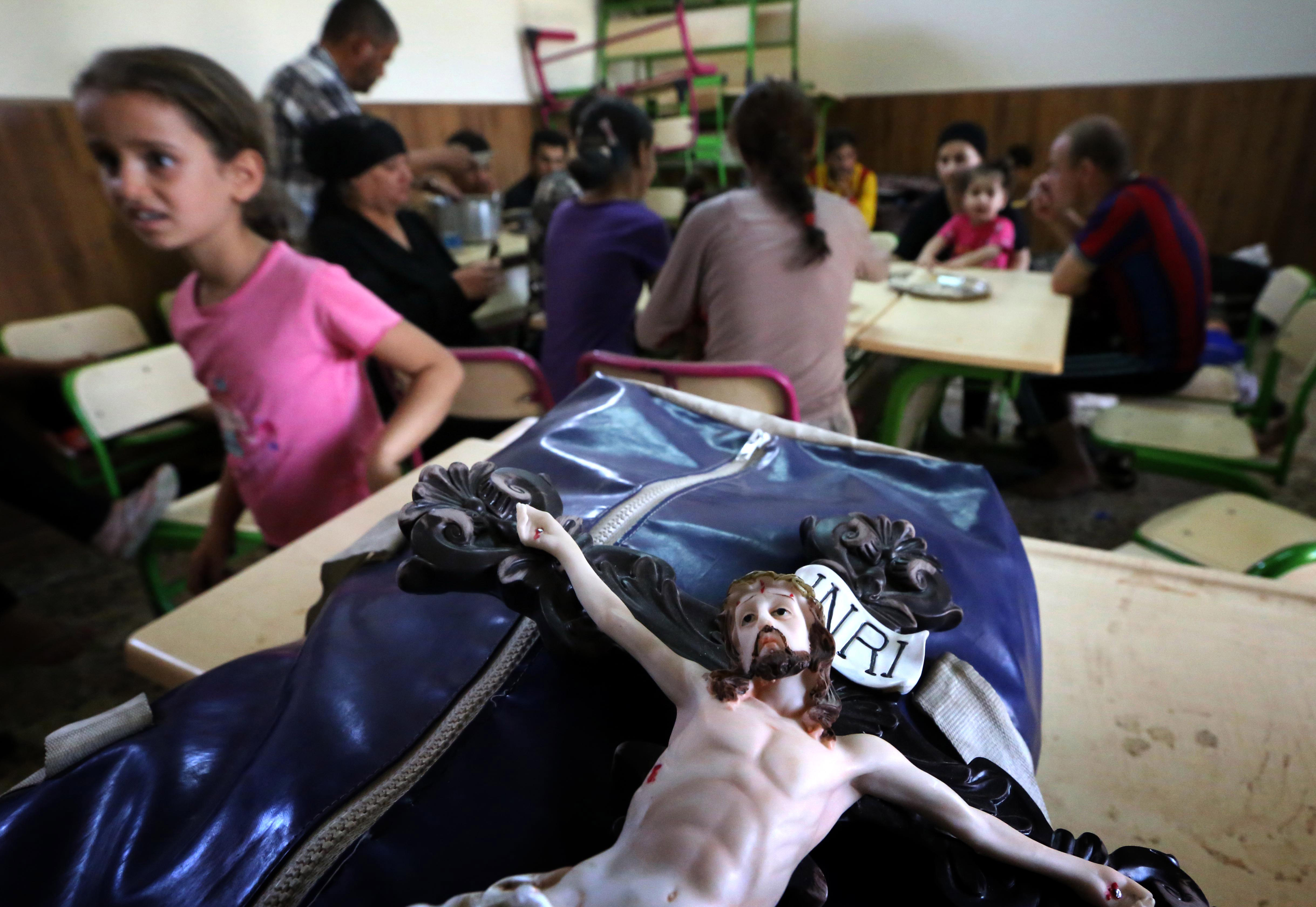Winds of war
A political and military standstill between the Kurds and Baghdad’s Central Government after the independence referendum of past September 25. Given the lack of an agreement the two contenders are battling from the respective positions in the Nineveh Plain, traditionally inhabited by Christians. Political instability and insecurity thus risk nullifying the efforts of the Christian population to return to their villages and rebuild their homes, destroyed after three years of occupation by the Islamic State. An armed conflict between the two contenders would give the final blow to the Christian presence in the Country. The personal accounts of Fr Paolo Mekko and Fr Benham Benoka, and the hope that Pope Francis may soon visit Iraq

Kurdistan is in a stalemate: the handover of control of the Nineveh Plain from the Peshmerga troops to the Iraqi army appears not to have happened yet. The agreement on the withdrawal of the Kurdish militia had been signed last October 29 between the central government of Baghdad and that of the autonomous region of Kurdistan with capital Erbil. More than a month has passed since the referendum, while the recent resignation of Kurdish President Masoud Barzani, Baghdad’s opposition, along with that of regional powers like Iran and Turkey, and international powers such as the United States and the EU, have thwarted the Kurdish dreams of independence.
This standstill risks turning the Plains, and its traditional villages inhabited by Christians, into a battlefield between the separatist Kurd activists and the Iraqi regular army. Once again, tens of thousands of Christian families, already forced to flee in the summer of 2014 from their villages of Batnaya, Baqofa, Qaraqosh, Karamles Talkief, Bartalla, Bahzani, and other nearby villages, after the advance of the jihadists of the Islamic State (Isis), risk paying the heaviest price. They weren’t even given the time to rebuild or repair some of their homes, as in Karamles and Tellusqof, where, as a result of armed clashes between the two armies, the local population was forced to flee from the villages where they had returned only recently.
Caught in the cross-fire. For Christians the possibility of living on a front line in the Nineveh Plain divided between Kurds and Iraqis, is yet the umpteenth challenge they would be called to face, said the Chaldean priest from Mosul, Father Paolo Mekko: “Today, the biggest concern is the outbreak of a conflict between the two armies. We don’t know when it will happen. We don’t even know what is being done at the political level to avoid it”, he added, referring to the political stalemate. “In this situation it’s hard to envisage the return of the Christian population to their villages. Everything proceeds at a very slow pace: we are rebuilding the homes in Karamles, even those that were burnt down. But owing to this tense situation it’s hard to ensure the arrival of building materials.
In spite of everything all the faithful are in good spirits, as evidenced by the many requests that we receive from families who want to rebuild and return to their homes. There is need for financial assistance to make the houses liveable, and for moral support.”
Appeals to unity and reconciliation voiced by the Chaldean Patriarch Louis Raphael Sako, have fallen on deaf ears. Five thousand Christian families have returned, and their yearning to return is a special reason for hope: “Four thousand families have returned to Qaraqosh, 230 in Karamles, over 200 in Bartella, some 900 in Telluskof, while only a few families have returned to Batnaya, that was completely destroyed. But security is needed for the Christian population to return in its entirety.
There is a concrete risk of a new exodus, and this time it would be lethal for the survival of Christianity in Iraq.”
But there are those who look ahead: “with the help of some university students we are planning to reopen a church in Mosul. We’ll see how it can be done.”
“Carrying the tents on our shoulders”. “We are refugees inside our homeland”, summarised Father Benham Benoka, Syro-Catholic priest, actively serving the Christian families of Mosul and from the Nineveh Plain that sought refuge in Erbil. “Our Christians are exhausted – he said – they had just started to go back to their villages
and now we had to pack all our things again and leave, caught between the cross-fire of the Kurds and of the Central Government.
We’re like the Bedouins: we carry the tents on our shoulders, and we must be ready to leave from one moment to the next. The yearning to make a permanent return to our homes, to our villages, is thwarted by the lack of security and the feeling of instability that accompanies us.” Together with his parishioners the priest created the “Humanitarian Ninive Relief organisation”, designed to support the most needy. “Those who could do so have left. Before ISIS many families were made of six or seven people, today we speak of mother, father and a son.” Father Mekko and Father Benoka agree:
“our priority is security. Insecurity fuels feelings of abandonment.
Christians must feel safe and at peace. The problem isn’t only ISIS but the political Islam that is worming its way through also within Iraqi institutions. And these are the results.”
While waiting for “something to happen” a hope remains. It’s the hope of all Iraqi Christians, and it’s the Pope’s visit to Iraq. Father Benoka:
“Dear Pope Francis come visit us, even for just an hour.”
Your presence could bring about a change at political level here where we are. We are asking you with all our heart.”